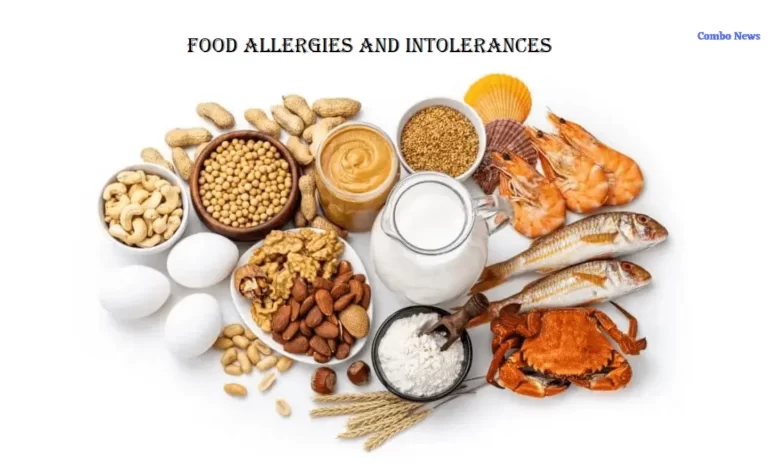Understanding Food Allergies and Intolerances: A Comprehensive Guide

In a world where dietary preferences and restrictions are as diverse as the cuisines we savour, it’s essential to have a clear understanding of food allergies and intolerances. These conditions affect millions of people globally, influencing their dietary choices and overall health and well-being.
In this comprehensive guide, we will explore the differences between food allergies and intolerances, their symptoms, common triggers, and how to manage them effectively.
What Are Food Allergies and Intolerances?
Food Allergies
Food allergies are immune system responses to specific proteins found in certain foods. When an individual with a food allergy consumes an allergen, their immune system mistakenly identifies it as a threat and releases histamines and other chemicals to fight it off. This exaggerated immune response can lead to a range of symptoms, from mild to severe, including hives, itching, swelling, difficulty breathing, and anaphylaxis.
Also Read | Anti-Inflammatory: 7 Foods to Add to Your Diet
Food Intolerances
Food intolerances, on the other hand, do not involve the immune system. Instead, they occur when the body has difficulty digesting certain foods due to enzyme deficiencies or other factors. Symptoms of food intolerances are typically gastrointestinal in nature and can include bloating, gas, diarrhea, and stomach cramps. Unlike allergies, food intolerances are not life-threatening.
Common Food Allergens
Several common foods are known for triggering allergies. These include:
1. Peanuts: Peanut allergies are one of the most common and potentially life-threatening food allergies.
2. Tree Nuts: Allergies to tree nuts like almonds, cashews, and walnuts are also prevalent.
3. Milk: Dairy allergies are common, especially in children.
4. Eggs: Egg allergies often affect young children and may be outgrown with age.
5. Wheat: Wheat allergies can be challenging to manage, as wheat is a staple in many diets.
6. Soy: Soy allergies can be found in individuals of all ages.
7. Fish and Shellfish: Allergies to fish and shellfish can range from mild to severe.
Common Food Intolerances
Food intolerances can vary widely among individuals, but some common intolerances include:
1. Lactose Intolerance: The inability to digest lactose, the sugar found in dairy products.
2. Gluten Intolerance (Celiac Disease): An autoimmune disorder triggered by gluten, a protein found in wheat, barley, and rye.
3. Fructose Intolerance: Difficulty digesting fructose, a sugar found in fruits, honey, and some vegetables.
4. Histamine Intolerance: An intolerance to histamine-rich foods like aged cheeses, wine, and fermented foods.
Also Read | The most ultra processed foods, cut from your diet
Managing Food Allergies and Intolerances
Managing food allergies and intolerances is essential to prevent uncomfortable or life-threatening reactions. Here are some key strategies:
1. Avoidance: The most effective way to manage food allergies and intolerances is to avoid the triggering foods altogether. Read food labels carefully, inform restaurant staff about your dietary restrictions, and choose allergen-free alternatives.
2. Medication: For severe allergies, carrying an epinephrine auto-injector can be life-saving. Consult with a healthcare professional for appropriate medications and instructions.
3. Consult a Dietitian: If you have a food intolerance, a registered dietitian can help you plan a balanced diet that avoids trigger foods while ensuring you get the nutrients you need.
4. Support Groups: Joining a support group for individuals with similar allergies or intolerances can provide valuable information and emotional support.
Conclusion
Food allergies and intolerances are more than just dietary restrictions; they significantly impact the lives of those affected. Understanding the differences between these conditions, recognizing common triggers, and adopting effective management strategies can help individuals with food allergies and intolerances lead healthy and fulfilling lives. Always consult with a healthcare professional for personalized guidance and support.
Also Read | How to Avoid Junk Food for a Balanced Lifestyle?








